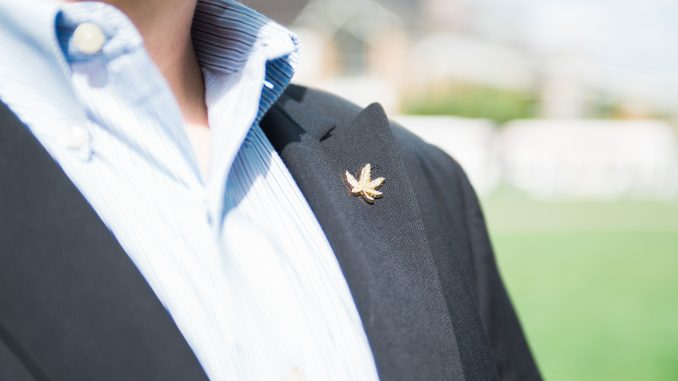
Ten years ago, Linn Washington never thought he would be able to teach a course about marijuana.
Now, he’s getting ready to teach “Marijuana in the News,” a journalism elective to be offered in Spring 2017 to any undergraduate. The course will offer an understanding of marijuana through the lens of news and media coverage.
The course targets communications students, but it’s open to all students, who may or may not encounter marijuana in their professional field after graduation, Washington said.
“At the very least, it will offer students an awareness of the rapidly changing landscape of cannabis,” Washington said. “What we intend to do is examine this issue from policy implications to legal implications, and historical and sociological and pop culture aspects of it.”
Chris Goldstein, a marijuana policy expert and columnist for Philly.com and deputy director of the city’s chapter of the National Organization for the Reform of Marijuana Laws, will teach the course alongside Washington.
Goldstein said it’s important to educate students on marijuana, especially now that it’s being decriminalized throughout the country.
“Marijuana is part of the fabric of American culture and society,” Goldstein said. “And with its decriminalization and legalization, it’s even more important to educate students. Journalists especially need to have a knowledge of the drug because they might cover it in their reporting.”
He added that they will educate students on marijuana through a medical and healthcare perspective as well.
Washington said they will also look at marijuana’s significance to political science, criminal justice, law and business.
“The Harvard Law School, the premier law school in the United States, has a class on taxation and marijuana,” Washington said. “And Hofstra Law School deals with it in the business context. The legal industry for marijuana is $51 billion. That’s a lot of money.”
“Regardless of what your major is, there’s going to be a need for understanding for this,” he added.
Sierra Morris, a sophomore criminal justice major, said she’s interested in taking the class.
“Marijuana is a slightly controversial topic right now. For our generation, it’s something that’s pretty normal,” she said. “It would be interesting to speak with adults, because adults have different perspectives about it too.”
Morris also found the class relevant to her major because of incarceration due to marijuana-related offenses.
“People are being put away for marijuana, compared to bigger crimes, such as murder or rape,” she said.
Kayla Watkins, a senior film major, said the class would help her postgraduate plans in filmmaking.
“My filmmaking focuses mostly on disenfranchised communities, lower-income women and people of color,” Watkins said. “I think this would obviously be a part of it.”
Washington said the decriminalization of marijuana possession in Philadelphia, which occurred in October 2014, was legislated “in part because of the racist enforcement” of drug crimes in the American criminal justice system.
“Prior to this, thousands of Blacks would be arrested for possession. On the other side, the arrest rate for Whites was around 600 [per year],” he said. “And it is acknowledged the races use marijuana on equal basis, Whites a little more, so why would you have that kind of disparity?”
Washington said he anticipates high enrollment for the course and he hopes students take it seriously.
In anticipating possible criticism for the course, Goldstein said he isn’t worried.
“I know I can count on the support of young people,” he said. “We hope it’s going to be engaging.”
Iman Sultan can be reached at iman.sultan@temple.edu.


Be the first to comment